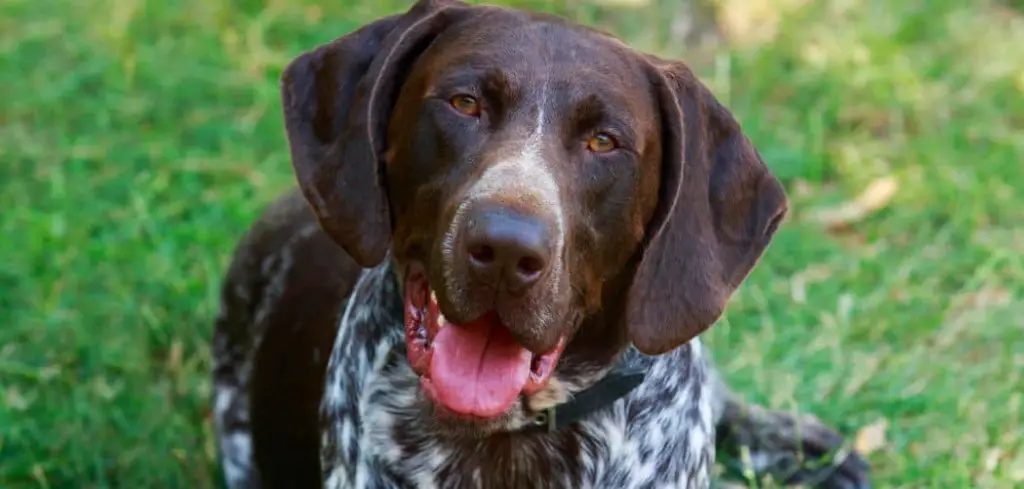A persistent cough in dogs can be worrying, especially when kennel cough has been ruled out. Coughing is a symptom, not a disease itself, and it can indicate a range of underlying health issues.
We outline the common causes of coughing in dogs that isn’t kennel cough, what you can do at home, and when to seek veterinary help.
Table of Contents
Dog Coughing But Not Kennel Cough: Why It Happens
Coughing in dogs that isn’t caused by kennel cough usually points to other respiratory, cardiac, or systemic issues. Conditions such as heart disease, collapsed trachea, allergies, lung infections, or environmental irritants can all trigger a cough.
Even mild cases should be monitored closely, as persistent coughing may indicate underlying damage to the airways or lungs.
Observing your dog’s behavior, energy levels, and breathing patterns can help you determine the urgency of veterinary evaluation.

Dog Coughing But Not Kennel Cough: Common Causes
Heart Disease
Heart problems, especially congestive heart failure, can cause fluid to accumulate in the lungs, leading to coughing. The heart’s reduced ability to pump effectively increases pressure in pulmonary vessels, irritating the lungs and airways.
Owners may notice rapid or labored breathing, fatigue, exercise intolerance, or swelling in the limbs or abdomen.
If untreated, heart disease can worsen, leading to serious respiratory complications, making early veterinary diagnosis and management critical.
Read more: Dog Coughing Up White Foamy Mucus (Here’s why)
Collapsed Trachea
A collapsed trachea occurs when the cartilage rings supporting the windpipe weaken, narrowing the airway. This often results in a honking or hacking cough that worsens with excitement, activity, or pressure on the neck.
Small and toy breeds are particularly vulnerable. Chronic irritation from the collapsed trachea can damage the airway lining, causing persistent coughing and increased risk of secondary infections.
Veterinary management may include medications or lifestyle modifications to reduce stress on the airway.
Chronic Bronchitis
Chronic bronchitis involves long-term inflammation of the lower airways, causing a persistent cough with or without mucus. Repeated irritation can damage the airway lining, leading to wheezing, difficulty breathing, or coughing that worsens at night.
Owners might notice occasional gagging, decreased exercise tolerance, or subtle changes in energy levels. Because chronic bronchitis is progressive, early detection and treatment can improve quality of life and reduce long-term lung damage.
Heartworm Disease
Heartworm infection is caused by parasitic worms transmitted by mosquitoes. Adult worms live in the heart and lungs, obstructing blood flow and irritating the airways, often resulting in coughing.
Symptoms may include fatigue, labored breathing, decreased appetite, and a swollen abdomen in advanced cases.
Heartworm is preventable with medication, but once symptoms appear, veterinary care is essential, as treatment can be complex and risky.
Allergies
Dogs can develop coughing from exposure to smoke, dust, pollen, or strong fragrances. Allergic reactions may cause mild to moderate airway inflammation, resulting in a hacking or dry cough.
You may also notice sneezing, watery eyes, or itching. While less immediately dangerous than heart or lung disease, repeated exposure can worsen airway inflammation and trigger secondary infections, making environmental management important.
Lung Infections
Bacterial, viral, or fungal infections can infect the lungs and lower airways, causing coughing, fever, and lethargy. Pneumonia may develop following aspiration of food or liquids, or as a complication of other respiratory infections.
Signs include rapid breathing, exercise intolerance, and reduced appetite.
Pneumonia can be life-threatening if untreated, requiring prompt veterinary intervention, antibiotics, or supportive care.
Read more: Dog Coughing No Other Symptoms (What’s behind it?)
What to Do If Your Dog Is Coughing But Does Not Have Kennel Cough
If your dog is coughing but does not have kennel cough, observe them closely and maintain a calm environment. Reduce exposure to dust, smoke, or strong scents that may irritate the airways.
Keep your dog at rest and monitor their eating, drinking, and energy levels. Note the frequency, intensity, and triggers of coughing to share with your veterinarian. Providing fresh water can help soothe the throat and thin mucus, but do not administer human cough medications, as these can be toxic to dogs.
If the coughing is mild and infrequent, contact your veterinarian for guidance on monitoring and possible diagnostic tests to rule out heart disease, airway collapse, or infections.
When to Call or Visit Your Vet
Seek veterinary care immediately if your dog shows any of the following:
- Persistent or worsening cough that does not improve.
- Labored, rapid, or noisy breathing.
- Blue or pale gums, fainting, or collapse.
- Loss of appetite, lethargy, or vomiting along with coughing.
- History of heart disease, respiratory infections, or environmental exposures that may worsen symptoms.
Even if the cough seems minor, it’s important to rule out serious conditions such as heart disease, lung infections, or chronic airway disorders. Early evaluation allows for faster treatment and improved outcomes.
Read more: Old Dog Coughing Up White Foam (Causes Explained)
Key Takeaway
Coughing in dogs that isn’t caused by kennel cough can result from heart disease, collapsed trachea, chronic bronchitis, heartworm, allergies, or lung infections.
While occasional coughing may be minor, persistent or worsening symptoms always require veterinary attention.
At-home care focuses on maintaining a calm environment, monitoring symptoms, and reducing exposure to irritants. Timely veterinary evaluation is crucial for proper diagnosis and treatment, helping to ensure your dog’s comfort, safety, and long-term health.
